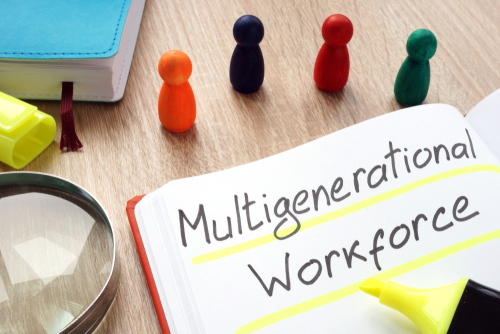The modern workplace is a multi-generational landscape, and new data confirms that the era an employee grew up in directly dictates their views on core policy decisions, from where they work to the technology they trust.
According to the 2026 State of People Strategy Report, which surveyed over 1,000 HR professionals globally, managing generational perspectives is no longer a soft skill—it’s a crucial strategic challenge defining your future talent strategy.
The Great RTO Divide
The most visible split in the workplace is the Return to Office (RTO) policy, and Boomers are leading the charge back to physical workspaces.
A staggering 83% of Boomers are fully on board with the RTO movement. This perspective is rooted in their professional experience: they are the generation that built their careers on handshakes and in-person meetings, and they inherently value face-to-face interaction.
This value shows up in their view of technology:
- 56% of Boomers believe technology reduces human connection.
- 52% say technology makes work more impersonal.
Compare this to Gen Z, the only generation that grew up with tech from the cradle. Only 44% of Gen Z HR professionals personally agree with their organization’s RTO policy. They are the voice of dissent, preferring the flexibility enabled by technology.
From Skepticism to Agentic AI
While Boomers and Gen Z disagree on RTO, there is one area where older generations unite: skepticism toward new technology.
Over half of Boomers (52%) and Gen X (58%) share a similar stance: they require concrete proof that a tool works before they commit to using it. They approach tech integration with a “show me the ROI” mindset.
This cautious approach contrasts sharply with other groups:
- The Millennials Lead the Charge: Representing over half of the survey respondents, Millennials are diving headfirst into advanced AI tools. They are the group most likely to use agentic AI tools (which act semi-autonomously) regularly in their work.
- Gen Z’s Ethical Filter: While Gen Z is the most likely to actively seek out and experiment with new tech, they have a major caveat: 70% of Gen Z respondents voiced ethical concerns over AI, making them the most cautious generation when it comes to the moral implications of these tools.
HR’s Opportunity: Leveraging the Lens
Ultimately, the data shows that every generation holds a unique and valid perspective, shaped by the world they grew up in—and HR’s job is not to erase these differences.
As HR expert Breece notes, “Every generation brings a unique lens to HR influenced by the world they came up in, the tools they trust, and the values they hold. As HR leaders, our opportunity isn’t to erase those differences, it’s to leverage them in designing cultures that are both inclusive and future-forward.”
To build a truly inclusive and high-performing culture, HR must move beyond one-size-fits-all policies and begin designing programs that respect the Baby Boomer’s value for connection, the Gen X demand for proven ROI, the Millennial push for AI adoption, and the Gen Z requirement for ethical boundaries.

